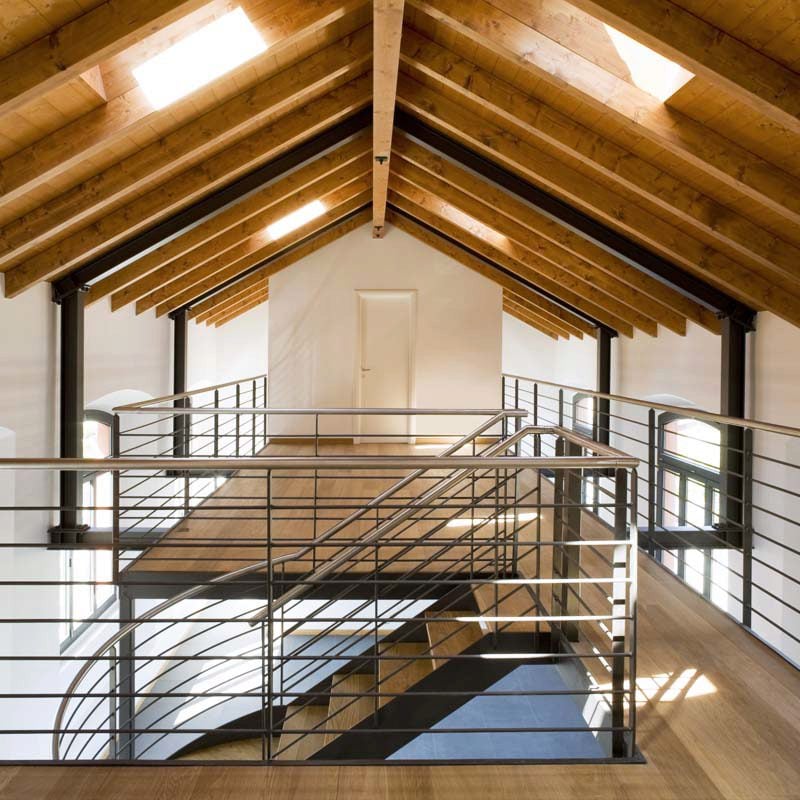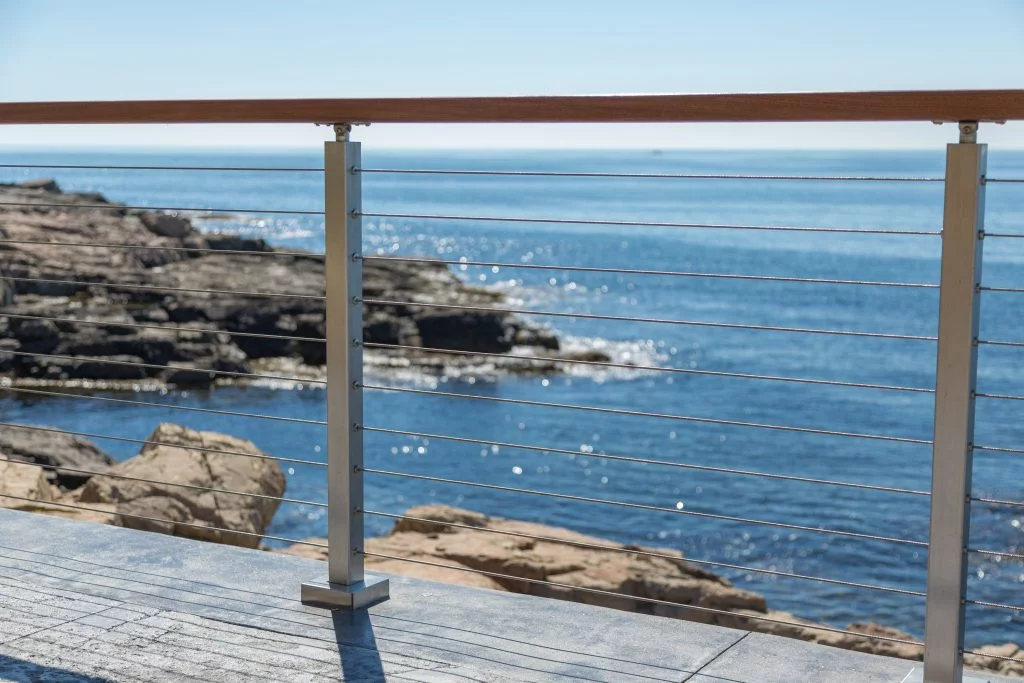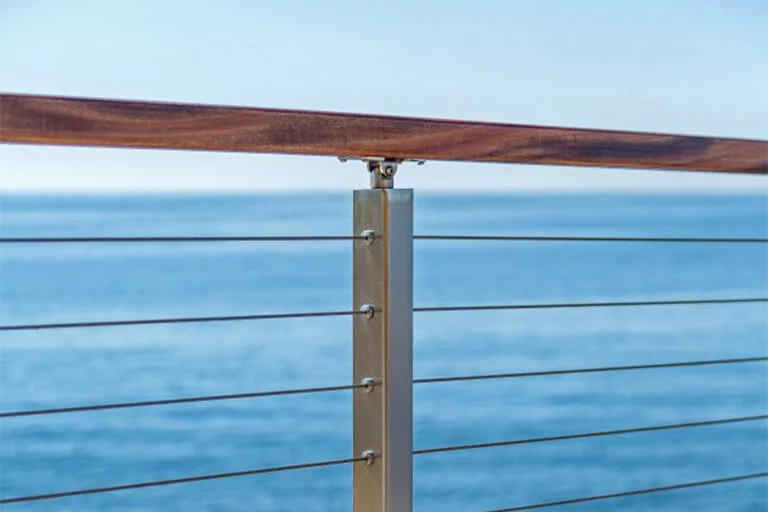The Difference Between Aluminum & Stainless Steel Cable Railing Systems
Aluminum and stainless steel are the two most common metals that you’ll see in modern railing or cable railing applications. Each of them are durable, strong, and beautiful if they used in the right ways. Stainless steel is much stronger than aluminum, inch-for-inch. This is due to stainless steel’s higher density, which we’ll get into in the next section. At first glance, this makes it seem like stainless steel is the obvious choice for a strong, long-lasting modern railing project. But a few factors must be considered: weight, corrosion resistance, and cost.

We should note that virtually all horizontal infills, like rod and cable railing, are made from stainless steel since the small diameter of the infill needs the strength of a stainless steel. The rest of this article is concerned with the performance of the posts on a modern railing system.
Weight
Stainless steel is an extremely dense material, coming in at about 8 g/m3. While this means it’s going to be able to support larger loads with less material, it also means that it will be much heavier. While this extra strength may come in handy in niche scenarios, it is usually overkill for residential and commercial railing applications.
Aluminum, conversely, is about 2.7 g/m3, making it about 3x lighter than stainless steel. Usually, that difference is alleviated by using a thicker walled post in aluminum than stainless steel. But that wall thickness is usually only 20%-40% greater than that of stainless steel. This ends up meaning that aluminum posts, while having a greater wall thickness than stainless steel, end up being about half the weight. This makes our aluminum cable deck railing posts a great cost effective option for any deck.
Viewrail aluminum posts are 7-8 pounds and stainless steel posts are 18-20 pounds (depending on height and mounting style). While a 20 pound post may not sound like it’s too heavy to handle, you’ll definitely notice the difference after handling 30+ of them on a large deck project. The fact is, stainless steel is overkill in a lot of scenarios, especially those that don’t receive heavy traffic. You can save yourself a lot of strain on the installation by choosing aluminum posts.
Here’s a quick table outlining the differences:
| Aluminum | Stainless Steel | |
|---|---|---|
| Metal Weight | 2.7 g/m3 | 8 g/m3 |
| Post Weight | 7-8 lbs | 18-20 lbs |
| Linear ft. Cost | 90$-120$ | 150$-225$ (dependent on steel option) |
Corrosion Resistance
If you live in a corrosive environment, such as near saltwalter or in an area with high levels of pollutants, there are two options to choose from. The first is Aluminum with an Superior Performance Powder Coat. With Viewrail’s intensive metal prepping process, and a marine grade Superior Performance Powder Coat, the results are amazing and will last decades.
The second option is 2205 Stainless Steel. This is far more resistant to corrosion than standard steel as it is a premium alloy. Read more about the corrosion resistance of 2205 Stainless Steel. The high amounts of chromium and molybdenum present in 2205 SS as well as lower amounts of carbon make 2205 stainless steel the best metallic finish solution for a corrosion resistant railing.
Cost
The final factor to consider is the cost of the materials. Stainless steel commands a much higher market price than aluminum does, putting it out of budget for many projects. Aluminum is far more commodified and thus cheaper to obtain than stainless steel, making it a more prevalent option for most railing projects. For more information check out our cable railing cost guide.
So What’s the Best Metal for Me?
In many residential and commercial applications, aluminum is the most cost-effective solution for your railing posts. Just make sure to not sacrifice the performance of stainless steel where you need it, such as in highly corrosive environments or in areas that need additional strength. If you’re within 5 miles of the ocean or in an area with high atmospheric pollutants, our recommendation is always going to be the premium performance of 2205 stainless steel.

